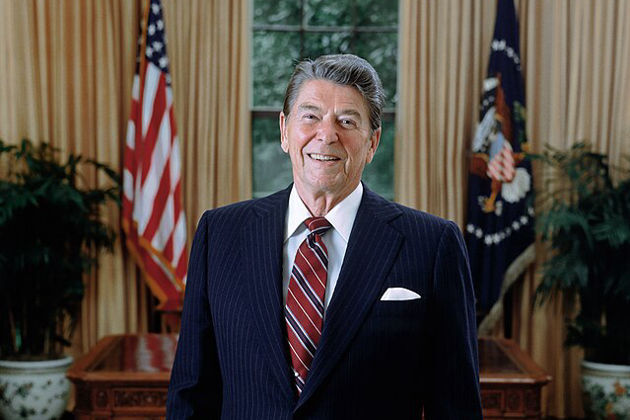Move FM Global News

Trump Halts Canada Trade Talks over ad, Reagan Foundation weighs in
Oct 28, 2025WASHINGTON, D.C.: Soon after President Donald Trump abruptly withdrew from trade talks with Canada on the night of October 23 after blasting a television advertisement he called “fake” and “fraudulent,” the Ronald Reagan Presidential Foundation and Institute weighed in on X, saying, the ad “misrepresents the ‘Presidential Radio Address to the Nation on Free and Fair Trade’.
The ad, sponsored by Ontario’s provincial government, quoted former U.S. President Ronald Reagan criticizing tariffs — a move that infuriated Trump, who has made tariffs central to his economic policy.
The controversy centers on a 38-year-old recording of Reagan’s radio address on April 25, 1987, in which he said: “Over the long run, such trade barriers hurt every American worker and consumer.” Trump took to his social media platform, Truth Social, to denounce the ad, writing, “CANADA CHEATED AND GOT CAUGHT!!! They fraudulently took a big buy ad saying that Ronald Reagan did not like tariffs, when actually he LOVED TARIFFS FOR OUR COUNTRY, AND ITS NATIONAL SECURITY.”
While the ad used Reagan’s genuine words, critics said it stripped them of their context — and the historical record does not support Trump’s claim that Reagan supported tariffs.
Reagan’s 1987 address came at a time of growing anxiety about Japan’s economic rise. Just a week earlier, he had imposed tariffs on Japanese semiconductors — a move seen as inconsistent with his free-market principles. In his speech, Reagan sought to justify that decision while still defending free trade. “High tariffs inevitably lead to retaliation by foreign countries and the triggering of fierce trade wars,” he warned, describing a vicious cycle that ends with job losses and shrinking markets.
Still, Reagan’s trade record was mixed. Despite his free-trade rhetoric, he sometimes embraced protectionist measures. He taxed Japanese semiconductors and imposed tariffs on imported motorcycles to protect Harley-Davidson. He pressured Japan’s automakers to limit car exports to the U.S. — a move that later encouraged them to build factories in America. He also pushed international partners to weaken their currencies to make U.S. exports more competitive.
Robert Lighthizer, who worked on trade policy under both Reagan and Trump, noted in his 2023 memoir that Reagan distinguished between “free trade in theory and free trade in practice.” Analysts at the time even labeled Reagan “the most protectionist president since Herbert Hoover.” Yet Reagan himself insisted such measures were reluctant exceptions, saying he was “loath to take” steps that restricted trade.
Trump’s approach has been far more aggressive. Since returning to the White House in January, he has imposed sweeping tariffs on nearly every major trading partner, targeting autos, steel, and pharmaceuticals. The average U.S. tariff rate has jumped from 2.5 percent to 18 percent — the highest level since 1934, according to Yale University’s Budget Lab.
Trump argues tariffs protect U.S. manufacturing, strengthen national security, and generate revenue. Critics counter that they raise prices and strain global trade. Several states and business groups have challenged his broad use of tariff powers, saying he exceeded his authority. The Supreme Court is scheduled to hear arguments in the case next month.
Through its Reagan-themed ad, Trump also accused Canada of trying to “interfere with the decision of the U.S. Supreme Court and other courts,” a claim that has further escalated tensions between Washington and Ottawa.


